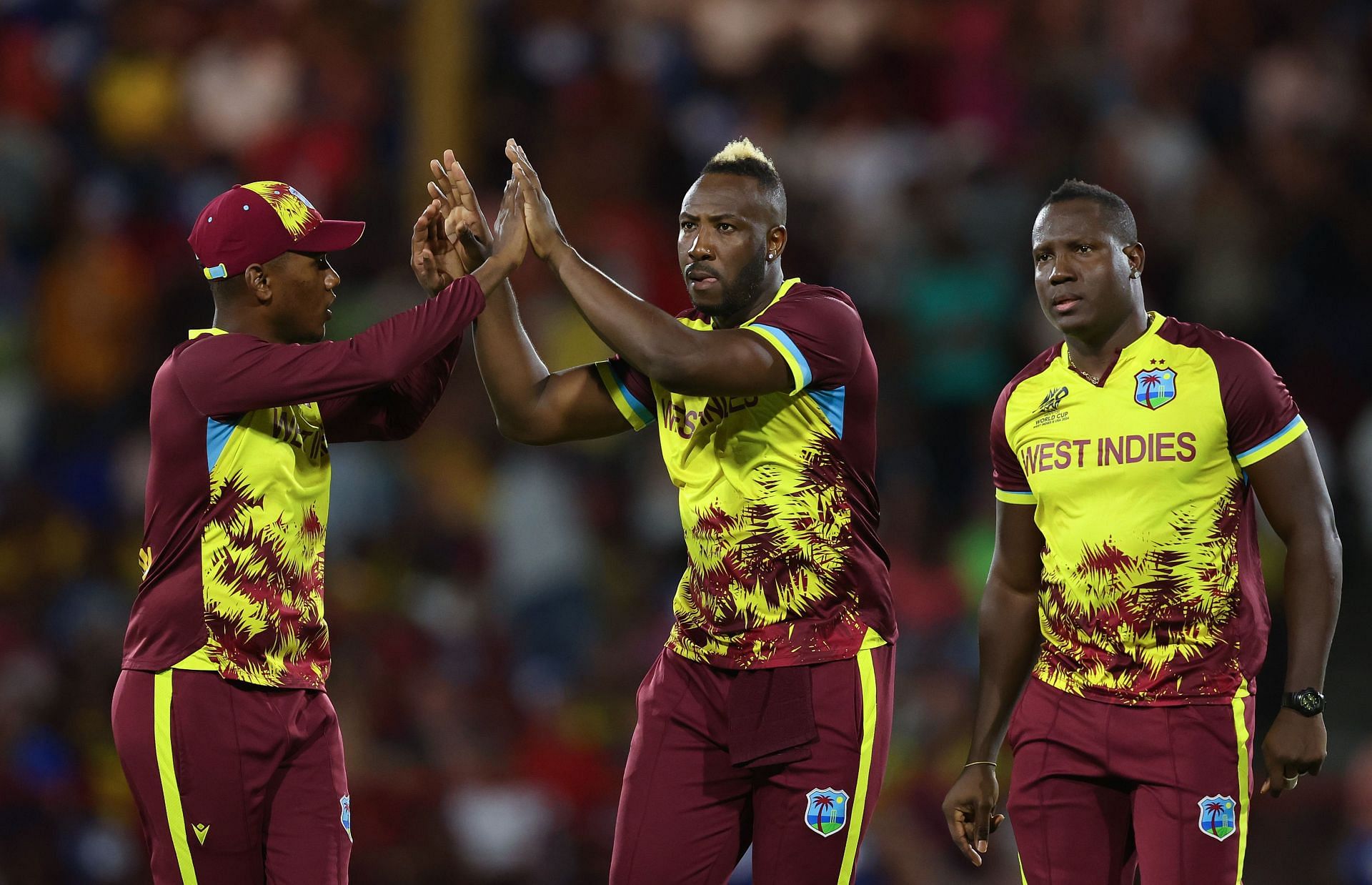
Not the ending West Indies craved, but a finish to be proud of
As Marco Jansen launched the ball over Obed McCoy’s head, you could sense the hearts of the West Indies players sinking. Those in the stands might have experienced something similar, not just because it was past midnight in Antigua and there had been a rain delay to amp up the drama, but because this was the T20 World Cup that was supposed to put the West Indies back on the T20I domination map, a little over eight years after they last won it.
That it was on home soil, only added to the narrative. No team, still, has won the T20 World Cup when hosting it, which is in stark contrast to what has happened in ODI World Cups since 2011, where India produced the only aberration last year.
In addition, they had brought all their franchise A-Listers together, with Rovman Powell, an extremely passionate and thoughtful captain at the helm. It was, thus, set up to be the West Indies’ tournament.
Until…it wasn’t.
And while that is a feeling they will have to live with, at least until the next ICC event comes around, it is one they can wear with…for the lack of a better word, pride. That may seem counter-intuitive, because the sporting world, more often than not, is defined by results. All that was needed to believe otherwise was a quick glimpse of the West Indies when they bowled.
If you look at the scorecard, the first thing that might strike you is the extras they conceded. Nine wides, on most days, is an ordinary effort, not least when only 123 were needed in 17 overs. It must, however, be remembered that they were bowling with a wet ball, against a powerful batting unit, on a track that had improved drastically after the rain delay, and with the weight of numerous islands on their shoulders.
Defending as few as they were, the West Indies were not meant to drag the game into the final over, let alone be slightly ahead of the eight-ball when 11 were needed off eight balls. And while some may be quick to put that down to South Africa’s inability to close out the match, it was also because the West Indies just did not cave in. Which, if you consider the boom-or-bust reputation they generally carry, is a significant achievement.
It all began with Andre Russell picking up two wickets in the same over, preceding a rain delay that sucked the momentum away from the two-time champions and further lengthened their odds. Had rain not played a part, and had the pitch remained similarly sluggish, who knows what might have happened?
Rather than brooding over the what-ifs, West Indies focussed on what was in their control, which is an overused phrase these days, but the application of which cannot be overstated enough.
West Indies almost pulled off a heist against South Africa
Roston Chase, who many might not earmark as a T20 star, embodied this change in tack. Brought into the attack very late, perhaps even after the game had seemingly passed the West Indies by, he did the simple things right: bowl at the stumps, bowl lengths that maximize the two-paced nature of the surface, and force the batters to do something different.
That brought him the wickets of David Miller and Tristan Stubbs. The former, while trying to cut a ball that was not short enough; the latter attempting a hoick that was, at least in his head, designed to finish off the West Indies completely.
In between these two moments, there was an Alzarri Joseph spell. There always is, whenever exciting times and West Indies are mentioned in the same sentence. The only difference this time was that it was not a spell of two or three wicket-taking deliveries and other ordinary ones. It was a consistent display – high pace, high accuracy, and high impact.
It could be argued that it was his snorter to Heinrich Klaasen that left the door ajar for the hosts to sneak through. Jansen would shut that door half an hour later, but for that period, the West Indies believed. And the crowd began believing in them too.
They believed that they could scrap this game out of nowhere and pull a victory out of the fire. Unlike what they usually do, and unlike what their USP has been ever since T20 World Cups became a thing. And that will give them hope for the future and make them proud of what they have managed at this T20 World Cup.
Post the match, skipper Rovman Powell suggested as much, talking about how his side had climbed up through the rankings. He also mentioned how the crowd and the people in the Caribbean were now buzzing over their cricket and were rallying behind the players. He even went as far as saying that they now feel something when the “Rally round the West Indies” anthem is played out before games.
That can surely not be for nothing, right?
In an ideal world, the West Indies’ T20 World Cup campaign would not have ended a little past midnight in soggy Antigua against South Africa, with almost a week of action left. But it did. They did not get the result they wanted. Or the T20 World Cup they so desired.
However, they do return to their respective islands with hope. Hope that they can go back to being the team they want to be in this format. That they can blow teams away, and perhaps even outlast them in almighty scraps. Or, long story short, win any kind of T20I.
Not sure many West Indies sides have left ICC tournaments with that feeling lately. And that is a story in itself. Of how they did not get the fairy tale ending they craved, but still have a finish they can be very proud of.